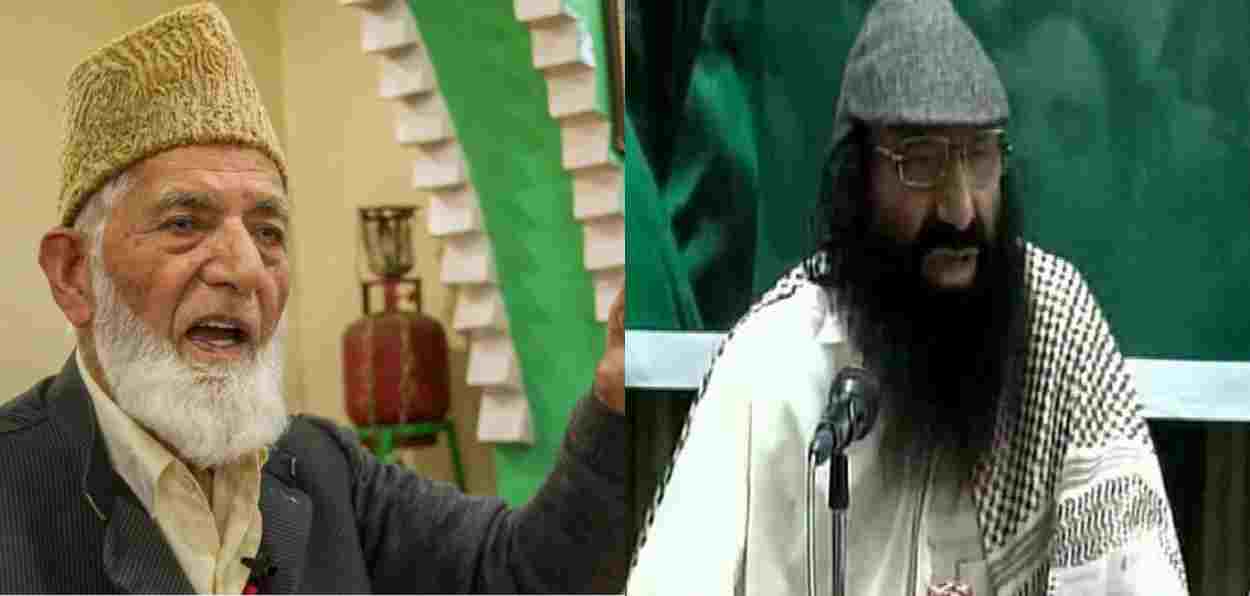
Shujaat Ali Quadri
The Ministry of Home extended the ban on Jamaat e Islami of Kashmir by five years. This was in recognition of the fact that that organization is synonymous with terrorism in Kashmir. The Jamaat was banned in 2019 as part of the Narendra Modi government’s plan for abrogation of Article 370.
The Jamaat e Islami Kashmir was established in the early 1950s and over the decades the organization charted its ideological path contrary to its parent organization that relocated to Pakistan. Like any organization founded on a long-term institutional vision, the Jamat-E-Islami Kashmir targeted the youth and middle classes through mass education campaigns.
In comparison with the static, yet popular, Sufi setups, the Jamaat's missionary zeal made it reach all corners of the valley espousing the establishment of an Islamic society.
In the 1960s and 1970s, with the then Congress leadership's micromanaging Kashmir affairs and the arrest of Sheikh Abdullah created a permanent leadership vacuum in the Valley, the Jamaat got entrenched in society and governmental apparatus.
Influenced by the upheavals in the Islamic world in the latter years of the Cold War, the Jamaat played a key role in the creation of the Muslim United Front, a conglomeration of smaller parties that subtly questioned J&K’s accession to India. The MUF contested the 1987 Assembly elections and it resulted in a perception of large-scale rigging against MUF by the National Conference.
The perception that elections were rigged by the Congress leadership grew and it was followed by the beginning of an armed insurgency by MUF Cadre. Of course, Pakistan was a major factor that made use of the unrest among the Kashmiri youth and trained and armed them to launch a full-fledged insurgency against India in Kashmir.
Later, a MUF leader Syed Salahuddin, who today lives in Pakistan, established the Hizbul Mujahideen terror group and it eventually emerged as the most powerful pro-Pakistan armed outfit in the valley. Its cadres were drawn mostly from the Jamaat cadre.
Like most regimented organizations, the Jamaat-e-Islami has a large network and its cadres worked as over-ground workers of Hizbul Mujahideen, ferrying arms, arranging transportation for the terroprists, picking families that would host foreign terrorists, creating hideouts and storing arms for terrorists and above all be the informers of terrorists.
Syed Ali Shah Geelani, who was elected to the State Assembly on the ticket of Jamaat-e-Islami five times, continued to espouse the cause of an Islamist society. He simultaneously advocated Kashmir's merger with Pakistan. In his book Nava-e-Hurriyat, he presented a wrong interpretation of Jammu and Kashmir's accession to India. Geelani justified Pakistan's invasion of Kashmir in 1947, terming it as a war of liberation.
Geelani even led prayers for Al Qaeda Chief Osama bin Laden after he was killed by American forces in Pakistan. For decades, he remained the face of radical politics in Kashmir, bringing the daily life in Kashmir to a standstill whenever he wished.
Geelani alone radicalized more Kashmiri youth in the last decade of his life than all the Jamaat preachers put together. Jamaat has systematically penetrated the Police, education department, and other crucial fields to subvert the system. More importantly, it opened a chain of schools under the banner of “English medium schools” across Kashmir to pick nimble minds for indoctrination.
ALSO READ: We are loyal Indians: kin of Kashmiri secessionists
In these three decades since the onset of insurgency, the Islamist agenda seeped so deep into Kashmiri politics that it became synonymous with Kashmir's body politic till the government finally decided to ban the Jamaat e Islami in 2019. It is not just Kashmir but the entire subcontinent that has suffered at the hands of the Jamaat. The Jamaat's tendency to define religion in distorted political contexts is the primary reason that youth have fallen prey to its propaganda, only to regret their decisions decades later. Firstly, the Jamaat ideology alienates the Muslim youth from their local Sufi traditions and instills hatred against Sufism, and finally, it antagonizes them to a point of no return.
(Dr. Shujaat Ali Quadri is the Chairman of the Muslim Students Organisation of India)
